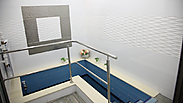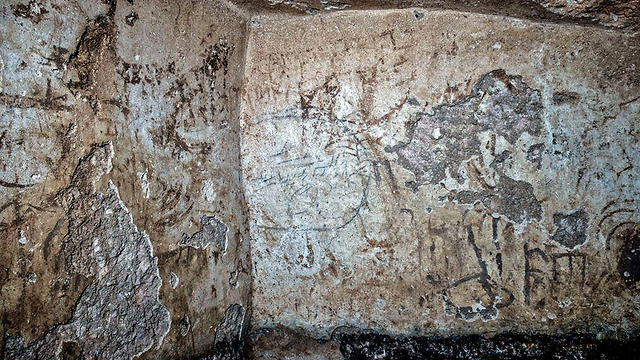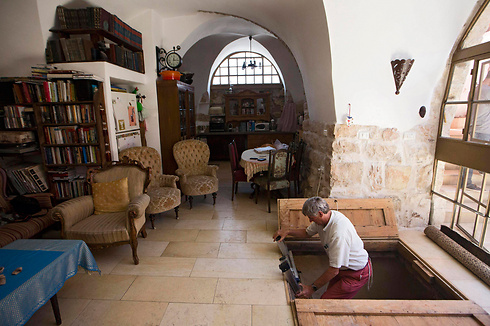
Double dipping controversy
The debate over mikvehs (Jewish ritual baths) and under whose authority they lie is bigger than it seems. If things go on as they are, it could lead to unpleasant long-term strategic consequences.
In general, water immersion does not bring up religious connotations for me. I take a dip when it’s hot and when I have a chance. Sometimes I go for a dip when I have no choice, and cool water traps me in aggravated social situations. 13 years ago, on the eve of my wedding, I soaked in the sea in accordance with a two-year tradition I developed during my two years living in Tel Aviv.
I was at Gordon beach in the morning hours, accompanied by my younger brother who served as a type of halakhic specialist, floating near the breakwater. Since then, I’ve tried to immerse myself on the eve of Yom Kippur every year as well. Hop over to the nearest spring with the kids. A cold Immersion that shrinks my blood vessels and, in my opinion, my sins as well.
I write all of this to make it clear that my connection to the Chief Rabbinate’s ritual baths (mikvehs) is completely loose. I don’t bathe in theirs and they don’t bathe in mine. Most of the government’s ministers are the same way. The ministers (including some of the ministers from HaBayit HaYehudi), their wives, and their children prefer leaving that to others. If it was possible, they would leave the vote on the mikveh bill to others as well. So, whoever made taking a dip into a political preoccupation has committed a double sin: One against those above, and one against those below.
The test of history shows that the Jewish people love to fight and love being clean: Two contradictory qualities. Archaeological research of the Second Temple time period uncovered hundreds of ritual baths of all kinds. Strict hygiene rules probably also allowed for a greater life expectancy. Medieval urban legend says that Jewish mortality rates from the black plague of the 14th century were significantly lower than those of the gentiles. Why? Because they used to wash their hands before meals, and take frequent dips in the mikvehs. That’s the cleanliness part. The fighting part? It’s very far from being sanitary.

The debate over the mikveh bill, which only passed the preliminary reading stage this week, is bigger than the question of which rabbinate tells us how to dip. Israelis have become accustomed to the Chief Rabbinate. Nothing can surprise them already. A chief rabbi who took bribes, rabbis who refuse to implement government decisions or who participate in events against IDF recruitment, jobs being handed over to insiders’ brothers, uncles, sons, or merely the chief rabbinate's event that took place this week and the dishes served at it – all kosher under the Edah HaChareidis Badatz (an inspection and arbitration body that oversees religious matters. -ed), because their own kosher inspection is apparently not good enough (as uncovered by Channel 2 News’ Yair Sharki). Reality surpasses parody. The same applies to the mikvehs.
The problem with ultra-Orthodox law and the support by the coalition is that it is a small pond that hides in it a large sea. Not a sea of halakha (A collection of Jewish religious laws. -ed) but a one of policy. What’s hidden here is a debate on the connection with the American Jewish community. Loosening that tie could prove to be a strategic threat far greater than Palestinian terrorists armed with knives.











